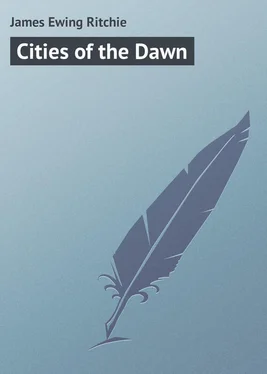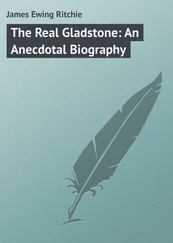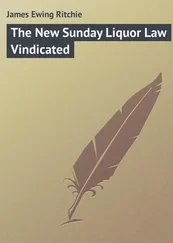James Ritchie - Cities of the Dawn
Здесь есть возможность читать онлайн «James Ritchie - Cities of the Dawn» — ознакомительный отрывок электронной книги совершенно бесплатно, а после прочтения отрывка купить полную версию. В некоторых случаях можно слушать аудио, скачать через торрент в формате fb2 и присутствует краткое содержание. Жанр: foreign_prose, foreign_language, на английском языке. Описание произведения, (предисловие) а так же отзывы посетителей доступны на портале библиотеки ЛибКат.
- Название:Cities of the Dawn
- Автор:
- Жанр:
- Год:неизвестен
- ISBN:нет данных
- Рейтинг книги:3 / 5. Голосов: 1
-
Избранное:Добавить в избранное
- Отзывы:
-
Ваша оценка:
- 60
- 1
- 2
- 3
- 4
- 5
Cities of the Dawn: краткое содержание, описание и аннотация
Предлагаем к чтению аннотацию, описание, краткое содержание или предисловие (зависит от того, что написал сам автор книги «Cities of the Dawn»). Если вы не нашли необходимую информацию о книге — напишите в комментариях, мы постараемся отыскать её.
Cities of the Dawn — читать онлайн ознакомительный отрывок
Ниже представлен текст книги, разбитый по страницам. Система сохранения места последней прочитанной страницы, позволяет с удобством читать онлайн бесплатно книгу «Cities of the Dawn», без необходимости каждый раз заново искать на чём Вы остановились. Поставьте закладку, и сможете в любой момент перейти на страницу, на которой закончили чтение.
Интервал:
Закладка:
Let me turn to the streets – they are very narrow – and to the houses, which strike me as generally very small. In that grand climate the people must have mostly lived in the open air. One of the most elegant houses is that of the Tragic Poet. On the threshold was a dog in mosaic, with the inscription ‘Cave canem’ – now in the museum at Naples. I was much interested in the public baths, or thermæ, which indicate with how much care the ancient Romans attended to cleanliness and health. They must have been on a somewhat extensive scale. A passage leads to the chamber for undressing. Beyond this is the cold bath. Thence we make our way to the warm bath, or tepidarium. The baths also possessed an extensive colonnade, now converted into a garden, besides several other chambers and baths for women, none of which are now open to the public. But we see wonders everywhere, in spite of the fact that all that is best in Pompeii has been moved to the museum at Naples, where remains one of the finest of the Pompeiian mosaics – that representing a battle between Darius and Alexander, which no one who wishes to have a competent idea of ancient art should avoid going to see. Let me add that no visitor should go to Pompeii without having first got a clear idea of what he is going to see. The guides are but poor helps, as mostly they speak nothing but Italian. Further, let me say that if you have at Naples only the day allowed by the Orient Company, while waiting for the overland mails, which generally reach Naples in a little over two days and nights after leaving London, your best plan is to get hold of Cook’s agent, who reaches the ship in a boat with a flag bearing the well-known name. He will take you off, drive you straight to Pompeii, give you time to ‘do’ the place and to get a good lunch there, and bring you back in time to the ship to pursue the even tenor of your way to Egypt, or Ceylon, or Australia, as the case may be. If you have time, pursue your studies by a day in the museum, or more if you can. It is there you can realize best, as you study the grand statues of great men and women and gods and goddesses, the Diana of Ephesus being one of them – statues in which the
‘Majesty of human passion
Is to the life expressed’ —
what men the world’s masters were. Nero has a shocking head; Caligula looks an empty-headed fop; but I gazed admiringly on the grand features of my guide, philosopher, and friend – Marcus Aurelius. And I thought of Voltaire, as I stood opposite the noble statue of Julius Cæsar, on your left just as you enter the museum. Voltaire tells us men may be divided into two classes – hammers and anvils. Julius Cæsar evidently belonged to the former class. It was there, too, I saw a Venus, radiant in innocence and beauty and sweetness and grace, as if new ‘bathed in Paphian foam’ – the only Venus I ever could have loved. But I had no guide-book, and the day was hot, and all the attendants were fast asleep.
Let me add a caution: Never change money if you can help it. You are sure to get a bad franc if you do. At Pompeii the guide tried it on with me. Again, while waiting for the train at Pompeii, I was tempted to have a deal with a pedlar, who asked me ten francs for souvenirs, which I subsequently bought, after a good deal of haggling, for five. Unfortunately, I had only a ten-franc note, and he had to give me change – not in coppers, as they generally do in Naples, where silver is scarce, but in francs; and one of them was bad, as I found out when I went to the museum next day. To my disgust, the civil gentleman who takes the money kindly cut it in two.
‘I will call for you at a quarter-past seven,’ said Cook’s agent to me, as he left the Ormuz .
‘Come at that hour,’ I replied; ‘I will be ready.’
Alas! man proposes – often in vain. I went to bed early. I had made arrangements for an early meal. I had agreed to see that a fellow-passenger who was to come should be ready; but I could not sleep – the heat in the bay was too great, the odour of the tide-less waters seemed to possess my soul, and as I lay awake all the chronic diseases by which I am borne down reasserted themselves, and I didn’t get a wink of sleep till just as it was time to get up. I have an early breakfast, and yet there is no sign of Cook’s agent. In due time I see him, and my friend and I and Cook’s agent are rowed on shore, and we drive to Cook’s headquarters. There we are put into a carriage drawn by three horses, and away we go along the crowded streets. What a display we have on every side of the unwashed, as they sit at the shop doors, or at the corners of the long narrow alleys in which most of them live! There are naked children, hideous old women, and very unlovely young ones. A fat priest passes with his beaver hat and black robes, and a young woman rushes at him and kisses his hand. The priest and the militaire are to be seen everywhere. No wonder the country is poor.
As we proceed the ground begins to rise, and we see pleasant villas with decent gardens. As we rise so does the dust; for mostly we are shut in between two walls, over which we see the vine hang heavily, or apricots glitter among the green branches on either side. Here and there is a break in the wall, and, seated at rustic tables, peasants and their families are enjoying a holiday, looking under their vine arbours across the blue bay or pleasant Capri, or glancing upward at the smoking mountain above. At one of these wayside publics our driver stops to water horses, which are useful animals, and, in spite of the heat, never turn a hair. We enter the principal room, at one end of which is a big bed, while nearer the door is a table with wine and glasses, and fruit, and specimens of lava and other matters. My friend, with the recklessness of youth, spends his money. I refuse to do anything of the kind; and again our coachman urges on his wild career. He pulls up again as a woman rushes out of her cabin to offer us drink. Again we are tempted, and in vain. Then we reach a level of reeds and rushes, where resides a venerable and unwashed hermit, who sighs as he turns in and thinks of the hardness of our hearts. We are now nearly out of the cultivated land, as we see the gigantic fields of lava on every side; where it can all have come from is a mystery. You can scarcely realize how all this lava – stretched on every hand, far and wide – can ever have come out of that crater. There seems more lava than you could get into the mountain itself; and how terrible must have been the scene when the red-hot lava rushed down the mountain-side, overwhelming green vines, and square-roofed huts, and living animals, and smiling babes, and weak and helpless old age! As it cooled, it seems to have wreathed itself into a thousand fantastic shapes – and yet the scene is fair and tranquil. A small wreath of smoke at the top only suggests a feeble fire within, and down far below the blue Mediterranean sleeps, and gay Naples sparkles, and the great Campagna opens up its vast green solitudes, save where, here and there, a white-stoned villa varies its monotony. Around me animal life exists not. The yellow birch blooms in her golden beauty, that is all, and the common white butterfly of England has the upper airs all to herself.
As we reach the observatory – an oasis in the desert – we meet a couple of sportsmen; they have a gun between them, though why I cannot understand, as I see nothing to shoot at but lizards, and so we are drawn slowly on the dusty road, which zigzags in the most wonderful manner every few yards. We enter through a gateway which, I presume, marks the bounds of the Cook territory, as one of his agents takes a look at our tickets. With joy our brown-faced coachman points us to a white, flat-roofed building, which he declares truly is the hotel, where he intimates we can have lunch, and where he intimates he can do the same if we will supply the cash – which we do, though he had no right to ask it – and weaned and parched we enter the grateful portals of the hotel to feast, and to enjoy a refreshing breeze, which we should have sought for in Naples in vain. As I rested there, I felt no wish to depart either upwards or downwards.
Читать дальшеИнтервал:
Закладка:
Похожие книги на «Cities of the Dawn»
Представляем Вашему вниманию похожие книги на «Cities of the Dawn» списком для выбора. Мы отобрали схожую по названию и смыслу литературу в надежде предоставить читателям больше вариантов отыскать новые, интересные, ещё непрочитанные произведения.
Обсуждение, отзывы о книге «Cities of the Dawn» и просто собственные мнения читателей. Оставьте ваши комментарии, напишите, что Вы думаете о произведении, его смысле или главных героях. Укажите что конкретно понравилось, а что нет, и почему Вы так считаете.












